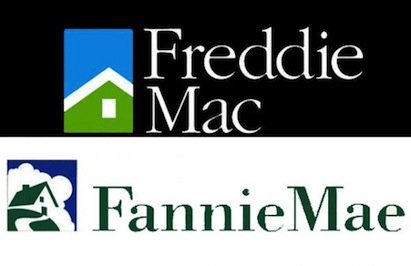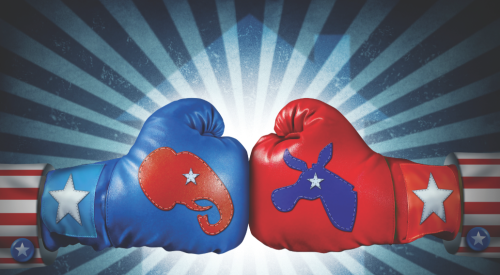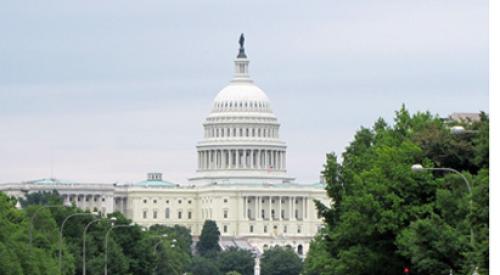The Obama administration outlined three options to change the way home loans are financed, calling for the shutdown of mortgage giants Fannie Mae and Freddie Mac over the next five years and reducing or eliminating the role of government in helping borrowers secure mortgages
When implemented, the proposals will make it more expensive for borrowers to buy a home and thus restrict the availability of mortgages. It also marks a significant departure from past government policies, which entitled homeownership as a virtual right.
“The government must...help ensure that all Americans have access to quality housing that they can afford," the administration said in its report to Congress, However this action takes an about face to last year’s policies. The support of taxpayers to Fannie May and Freddie Mac is estimated to reach $225 Billion by 2012 and plans to repay only $55B
When a governmental agency has so many problems and dark holes that cannot be filled, plugged or capped, the only real “political” solutions is to eliminate it. The real solutions should include and recovery and repayment plan like the auto makers put in place.
The Government can sweep this away from their door step when there is no department remaining to blame. There's $10 trillion in outstanding home loan debt. Taxpayers are almost certain to get the tab.
Policy makers, bankers and investors agree that taxpayer-owned Fannie and Freddie should be wound down. But there's no consensus on what should replace them. Why? Because the advisors all stand to gain from the departure. Ask a homebuilder the same question; you will get a whole other answer.
The first option outlined in the report calls for a private system in which lenders and investors fund new mortgages, with a limited role for existing federal agencies to subsidize home loans for the poor and other special groups, like veterans.
The second proposal calls for much of the same, but it includes a government backstop for mortgages during times of market stress. If credit markets froze, like they did at the height of the crisis, the government would step in and guarantee new home loans.
The third option outlines a much broader government role. Under this alternative, taxpayers would insure securities backed by home loans, which is what Fannie and Freddie already do. Most would believe that option three will be what gets implemented because there will too much of a void that needs to be filled.
The administration's outline explained the benefits and costs of the various options, but stopped short of endorsing any of them. Critics will likely say the administration balked at the pressure of having to make a decisionStory continues below
Along with federal agencies, taxpayer-owned, Fannie Mae and Freddie Mac currently guarantee more than nine of every 10 new mortgages. Delinquencies on home loans they back have thus far cost taxpayers more than $150 billion. Their regulator, the Federal Housing Finance Agency, estimates Fannie and Freddie could need up to $363 billion in taxpayer cash through 2013, it said in an October report.
Geithner said it will take another three years for the housing market to recover. It currently suffers from a high foreclosure and delinquency rate, low levels of homeowner equity, and an abundance of homes for sale without a corresponding number of interested buyers.
After that, it will likely take two to three years for policy makers to come to agreement on the government's role in funding home loans, Geithner said. The final step calls for new legislation. All told, Geithner said it will take between five to seven years to transition to a new system.
So in seven years you will see the beginning of a new system of mortgages for the homebuilding industry. Can we really survive that long? What are they thinking?
The shapers of the American mortgage finance system hoped to achieve the security of government ownership, the integrity of local banking and the ingenuity of Wall Street. Instead they got the ingenuity of government, the security of local banking and the integrity of Wall Street.
Shares of the two U.S. mortgage companies Fannie Mae and Freddie Mac collapsed. Freddie’s shares have lost 80% of their value in a week; Fannie’s 65% over the same period.
Fannie’s and Freddie’s ability to pay their debts depends in turn on their ability to collect from retail mortgage lenders. And with those lenders dropping dead like roses in a heat wave, collection suddenly looks very much in doubt.
The two institutions have long been run not by bankers but by retired political figures, predominantly Democrats. From 1991 to 1998, Fannie Mae was headed by James Johnson, a longtime aide to former Democratic vice president Walter Mondale. Johnson’s successor, Franklin Raines, had served as budget director to Bill Clinton. Jamie Gorelick, vice chair of Fannie Mae from 1998 to 2003, served as deputy attorney general in the Clinton administration.
These figures have paid themselves impressive private-sector salaries. Johnson earned US$21-million in just his last year at Fannie Mae. Raines earned US$90-million for five years’ work at Fannie Mae. Gorelick got US$26-million.
Yet the companies never had to meet the discipline of the private marketplace. They paid no taxes, and they had access to a line of credit at the Treasury department. More ominously for today’s crisis: They were not required to provide anything like the level of information about their internal operations expected of a privately owned company.
As so often happens with large scandals, the cost will fall on everyone except the responsible parties. In 2006, federal regulators sued Franklin Raines and two other Fannie Mae executives to recover US$115-million of compensation. The case was settled for US$3-million, plus the surrender of some (now probably valueless) stock options and other contingent benefits. The US$3-million was paid from Fannie Mae’s own insurance.
Game, Set, Match and who is next?











